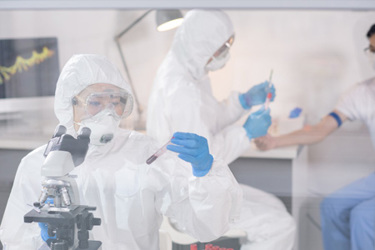3 Questions On Precigen's Cell Therapy Studies
By Dan Schell, Editorial Director, Life Science Connect

Clinical Leader recently touched base with Helen Sabzevari, Ph.D., CEO of Precigen, about the biopharma’s clinical-stage research in the CAR-T therapeutics space. The company currently has six products in its clinical pipeline, including three that use its UltraCAR-T platform.
1. Describe the types of patients you’re targeting for your UltraCAR-T platform and AG019.

On the other hand, patients receiving the AG019 ActoBiotics treatment for Type I diabetes have a chronic autoimmune disease, unlike late-stage cancer, and is not fatal.
2. From a manufacturing standpoint, explain how UltraCAR-T is different from a conventional lentivirus-based CAR-T solution.
The big difference is that, with our platform, you don’t need to pay huge fees to use the existing facilities of a CDMO or create your own centralized manufacturing facility that requires hundreds of millions of dollars in capital investment. For conventional CAR-T, if you do choose to use a CDMO, often there is limited availability and high demand, which creates long wait times, and consequently, delays in manufacturing. As an example of the impact that UltraCAR-T can have, consider that we are working with AML patients who have two to three months to live. If your manufacturing takes two months, you’ll never get the therapy to the patient in time.
UltraCAR-T, on the other hand, is based on non-viral gene delivery, which is manufactured overnight in a clean room at a hospital. Obviously, this can be done at a much lower cost as compared to outsourcing to a facility with hundreds of employees and large overhead.
For example, during the COVID-19 pandemic, when centralized manufacturing sites had major operational challenges, hospitals that were manufacturing UltraCAR-T were able to continue enrolling and dosing our patients. With overnight manufacturing in the hospital, patients were able to access the therapy, sometimes, the next day.
3. Is there a difference in the type of personnel that you need to administer your non-viral gene therapy?
At clinical trial sites where they use viruses to genetically modify immune cells, you need clinical investigators who can manage some of the toxicity associated with this kind of manufacturing. Because, basically you are training an army of cells to be killers — but not precise killers. They just go in and they release all they’ve got. As a result, some patients end up with Cytokine Release Syndrome (CRS), which can cause neurotoxicity.
For UltraCAR-T, we can work with any cancer center or major hospital that has a clean room. For instance, most of them have bone marrow transplant capabilities. In a way, that is a cell therapy; they get the bone marrow, they prep it, and they infuse it into another patient. With our process, we can train the facility’s technicians on our SOPs so they can administer and conduct the whole process. Also, since ours is a non-viral platform, during COVID, our patients continued to receive their therapy because we were able to manufacture it directly at the hospital without the risk of introducing a new virus to the environment.
Be sure to check out our Business of Biotech podcast interview with Helen Sabzevari, Ph.D.
